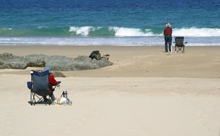
Fears that Canadians will have a much lower standard of living in retirement are exaggerated, according to Fred Vettese, chief actuary at Morneau-Shepell in Toronto, and in fact many people are likely over-saving for their retirement.
“Some people are definitely over-saving and having over-saving done on their behalf because they are employed by a company or by an employer who has a big pension plan,” says Vettese. “For example most people in the public sector would end up having a better standard of living in retirement than when they were working.”
Even people who mostly save for retirement through registered retirement savings plans (RRSP) and tax-free savings accounts could be over-saving, according to Vettese, who wrote an article for a recent edition of the Rotman International Journal of Pension Management called “Why Canada Has No Retirement Crisis. As such, instead of ensuring clients reach the rule-of-thumb target of a retirement consumption income that is 70% of what the person had when they were working, said Vettese, advisors should try for a 50% ratio.
“If you try to save [70%] you never will, it’s way too high a target for the vast majority of people,” he said. “So, if you start with 50%, it’s a lot more realistic.”
Part of Vettese’s reasoning for this lower consumption replacement ratio, is that people spend less as they get older. Citing a U.S-based study in his article, Vettese says that by age 75, household spending by Americans dropped by 19%, by age 85 it dropped by 34% and 52% by age 95. Even the possibility of higher medical or long term case expenses should not be overly concerning for most people, according to Vettese, because most costs are covered by the Canadian government and other expenses, such as living in a retirement home, could be covered by the sale of a principal residence.
Furthermore, many studies and experts predicting a crisis focus on pensions and benefits, such as the Canada Pension Plan (CPP), government benefits, like Old Age Security (OAS) and registered accounts as the sole sources of retirement income, says Vettese. However, other resources, such as the sale of a house or business, can go a long way to providing an appropriate consumption income for a retiree.
Finally, a labour shortage is likely to occur in the near future, says Vettese, due to the retirement of the baby boomers, which will in turn lead to an increase in the average retirement age. According to Vettese, the average retirement age in Canada is currently 62, however in future that number is likely to return to the more traditional age of 65. Working for an additional three years will mean Canadians will be better prepared for retirement.
On the other hand, while many Canadians are likely over-saving for retirement, they still need to have a higher investment risk tolerance. Vettese says a typical investment mix should be 70% equities and 30% bonds for investors saving for retirement. Once a person reaches retirement that number could go to 60% equities and 40% bonds. However, Vettese warns against going much lower than 60% even in retirement because of the struggling government bond market.
“There really isn’t a good case to be made for government bonds for a number of years to come because interest rates are going to go up,” he says. “In fact, they’ve gone up about 50 basis points over the past 12 months and I think that’s only the starting point.”